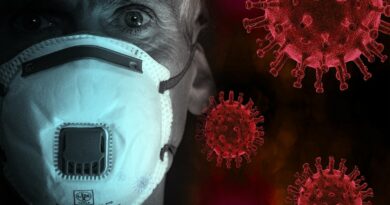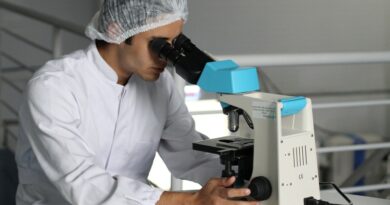How Doctors Think by Professor Jerome Groopman
How Doctors Think is a non-fiction text written by Prof. Jerome Groopman, a renowned medic and principal AIDS and cancer researcher at the prestigious Harvard University’s School of Medicine. The first version of this informative 305-page book was published in 2007 by the Houghton Mifflin. As a professional physician, Jerome based his research on his experiences at the medical school of Massachusetts and numerous interactions with his patients and colleagues.
He reports on the art of medicine, communication, doctor-patient relationship, medical education, infectious diseases, medical testing, patient experience, technology and medical mistake. He reports that 15% of the patients get wrong diagnosis because, just like any other human being, all physicians make mistakes in diagnosis and treatment. Hence, in order to solve this problem, there should be a change in the attitude and cooperation from all the concerned stakeholders: medical curriculum, insurers, physicians and patients (Jerome G. & Pamela H., 2011).
The doctors
It is a common belief that all doctors make mistakes. Jerome attributes this to poor training, which results into the strained relationship between the doctors, physicians, and the patients. He reports that at the medical school they are not given enough information on the role of communication, emotions, reason, consultation, compassion, cooperation, humility and other interpersonal skills.
As he argues, they are trained on the importance of outward processes, thus ignoring the fundamental psychological techniques that can build them emotionally. As obviously expected, this interferes with their work because it leads to lack of personal awareness, a vice associated with many physicians (Johnson, P. E. et al, 2008).
Besides, the training doctors are not sensitized to the role of communication skills in their duties. They lack listening, questioning, and understanding abilities, which should be the most important asset in this career. Therefore, they fail to give room to the patients, to ask them questions, and explain them their medical history, symptoms, and suggestions. This only gives room for misleading assumptions that leads to their making erroneous snap decisions (Jerome G. & Pamela H., 2011).
The doctors are also trained to behave like ‘catch as catch can’ computers. Instead of creating enough time to consult and think abstractly, they merely stand at a distance to watch their seniors do operations before making wrong judgments. They don’t use their wits in doing any duty vested on them, sticking to the established principles that make them reason like flowcharts and algorithms.
Challenges facing doctors
As a result of the aforementioned drawbacks, these physicians are obliged to confront the following hurdles:
The doctors fail to acknowledge the important role played by the primary care physicians. These gatekeepers are viewed as less important people who fail to be given a chance to participate in major operations. However, they should be heard because they can give important opinion, concerning the simple cases they specialize in.
There is lack of awareness on the most of personal issues. This may necessitate the higher chances of the occurrence of mistakes, which may be so ambiguous to make out.
Their work may come to a standstill due to lack of complete patients’ records. In this case, they may decide either to make a prompt action or inaction, which may turn out to be a fatal decision in their career.
The work of doctors is subject to a lot of pressure from the external forces like insurers and parents. They deny these experts an opportunity to autonomously make their own decisions regarding the type of diagnosis and treatment to offer their patients. Actually, this can result into an erroneous action with detrimental consequences.
Topic one
Rachael Stein/Shira Stein’s case
In this case, Jerome tells us of the young Shira who was wrongly diagnosed by 30 doctors for a period of 15 years. It confirms that all doctors are prone to mistakes. Even if she had been repeatedly diagnosed with bulimia, irritable bowel and anorexia nervosa, it was later found out that she was actually suffering from an autoimmune disorder, called celiac disease. This was done by Dr. Myron Falchuk who did an extensive research by consulting a number of books and colleagues.
This made him settle on the right diagnosis that changed the life of this kid. So, it teaches other doctors to be compassionate and committed to their duties. They should not give up in their responsibilities. Similarly, the patients and other parents should borrow a leaf from her mother, who persistently took her from hospital to hospital looking for a permanent remedy which she later sought. Therefore, just like her, patients should be actively involved in their treatment by asking thought provoking questions and providing the doctors with the accurate information they need.
James Lock’s case
During Jerome’s research, he decided to interview Dr. Lock in his work place at the Boston’s Children’s Hospital. Unlike many people, Dr. Lock, through his interactions with Jerome, he accepted that he had made a lot of mistakes throughout his life as a doctor. However, he asserted that the best lesson he can learn from that is to use his experiences alongside the laid down principles to make improvements appropriately (Jerome G. & Pamela H., 2011).
This is clear evidence that all medics make mistakes. So, just like Dr. Lock, they should be ready to learn from their past so as to make the possible adjustments. It also teaches us that we should be honest and serve our clients without any form of discrimination or biasness. This will make them have confidence in us besides supporting our endeavors in whichever way possible.
Caren Delgado and Rick Duggan’s case
This case talks about the interactions between the Dr. Delgado Caren and Rick Duggan who had met in the line of their duties. Rick, a pharmaceutical representative took this opportunity to lure Caren, who was a young endocrinologist on internship to prescribe a new medication to allegedly inform her on the innovations in the medical field. Even if she is a very powerful and well connected pharmaceutical, Dr. Caren, is not popular with the emerging brains in this discipline. So, she was trying to use her authority to guide the intern in the best way to improve the medical care to the people.
This case helps us to understand how pharmacists can use all tactics to introduce a new prescription to be adopted. At times, they do this without considering the entire target population. That is why it took a long time to convince Rick and others to embrace the use of this new product. I think they never put the interest of the patient’s primary to reaping large sums of money from the sales of the new produce
Nathan Talumpqewa’s case
This involved a patient who visited several doctors but was given a wrong diagnosis. Later, he visited another physician who helped him to recover from the problem he had been in for a very long time. He later got a relief he had been yearning for.
References
Jerome G. & Pamela H. (2011). Your medical mind: how to decide what is right for you. The Penguin Press.
Johnson, P. E. et al (2008)). Expertise and error in diagnostic reasoning. Cognitive Science 5 (3): 235–283.




